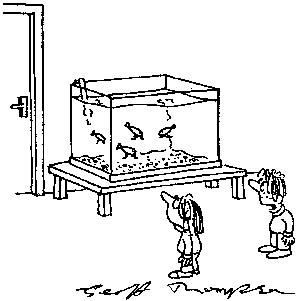The question I’m most often asked is this. How did I end up living and working in south London instead of doing what most reasonably successful movie actors tend to do — sitting around a kidney-shaped swimming pool in Beverly Hills, sipping cocktails and collecting cheques? The question I most often ask myself is a little different. How did a kid from South Orange, New Jersey, end up being artistic director at the Old Vic in London?
The answers to the two questions are interrelated. I work at the Old Vic because I believe passionately that theatre can help society. And the reason I believe that so strongly is that it helped me so much.
In fact I think that theatre, and culture in general, is so vital to the health of a country that if the coalition is going to cut arts funding, it must encourage philanthropy instead. The government should adopt the American model, giving better tax breaks for corporations and individuals who are willing to sponsor the arts. I’m going to be knocking on the door of No. 10 before too long to make that case.
I was lucky; I grew up at a time in Los Angeles when there was an enormous amount of funding for arts in schools. I was also lucky in that I found acting at a very young age and had some extraordinary mentors and teachers. The programmes that I got involved with through my drama class involved going to professional plays, workshops, seminars, weekend festivals, one-act festivals, Shakespeare festivals — all of it made possible because of arts funding.
At 13, I was taken to a workshop in Los Angeles being run by my idol, Jack Lemmon. We had to do a scene from Juno and the Paycock by Sean O’Casey. When I had finished my scene, Jack Lemmon walked up to me and put his hand on my shoulder and said, ‘That was a touch of terrific, this kid is an actor, you’re an actor, you should go to school and study.’
I did study — and later I got to know Jack. So when I’m asked why I have turned my life toward the work that we’re doing at the Old Vic, and my wider efforts towards art and culture funding and philanthropy, there are a number of answers.
Part of it is to repay the debt that I owe to people like Jack, who saw something in me long before I showed any real promise. But it’s also because I know the difference acting can make in a young person’s life. When you stand on a stage or in a workshop or a drama seminar, you have an opportunity to learn about yourself, to learn about self-esteem. This is not about whether kids want to go into the arts. If that’s what their life dream is, you won’t be able to stop them. But more than just training people to create and perform, theatre is a educational tool that can help people talk to each other.
How many times have you been in line at some company or on the phone to some corporation, wishing to God that the person you are talking to had at some point been taught to communicate better? Theatre does that. I believe we help young people not only to communicate, but to find confidence and learn how to collaborate.
But this truth is being lost amid the never-ending talk of the credit crunch and the downturn and the recession. The doomsters and gloomsters, as I like to call them, say that the arts are going to accept that cuts are going to happen. There’s nothing we can do about it. Besides, why should the government support the arts anyway? I would answer that culture is the strongest ambassador of the human condition that we share around the world. Countries go to war; it is culture that unites us. Just think of the words of a great writer, the style of a legendary dancer, the breadth and beauty that actors can bring to their parts. Here in Shakespeare country that ought to be understood.
Moreover, as someone who is in a position to fight for arts funding, I think we must emphasise the strong economic value of the arts. We have to talk about what the arts do for our economy. I like to use this example. Imagine a Sunday afternoon: you are walking along the South Bank with the love of your life, your children, your dog and the place is teeming with people. There are so many people it’s crazy. Why are they all there? Culture. What does that do for the economy? Well, the taxis are filled, the restaurants are filled, people are going into the shops. Cultural centres bring money to all the surrounding businesses that exist in that environment. That’s just true.
Of course, if theatres and cultural centres close down, we will lose more than money. We are all eager for moments of inspiration. We saw it last week with the 33 miners who were rescued in Chile; the story brought people together and made us all wonder at the beauty of human relationships. There is no doubt through movies and books and theatre and opera and ballet and poetry, we find that same feeling.
We need these things because they move us forward, they allow us to learn from our mistakes and help us discover our potential. I happen to believe that if you have been fortunate enough to be successful in your chosen field, you should spend a good portion of your time ‘sending the elevator back down’. That’s a phrase that Jack Lemmon used to use. The truth is that it doesn’t matter what floor you’re on. There is always someone just dying to come to the top.
This is an abridged extract of a Spectator lecture, sponsored by Range Rover and given on 14 October.






Comments